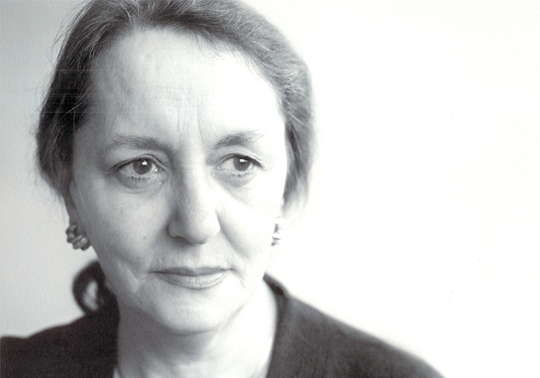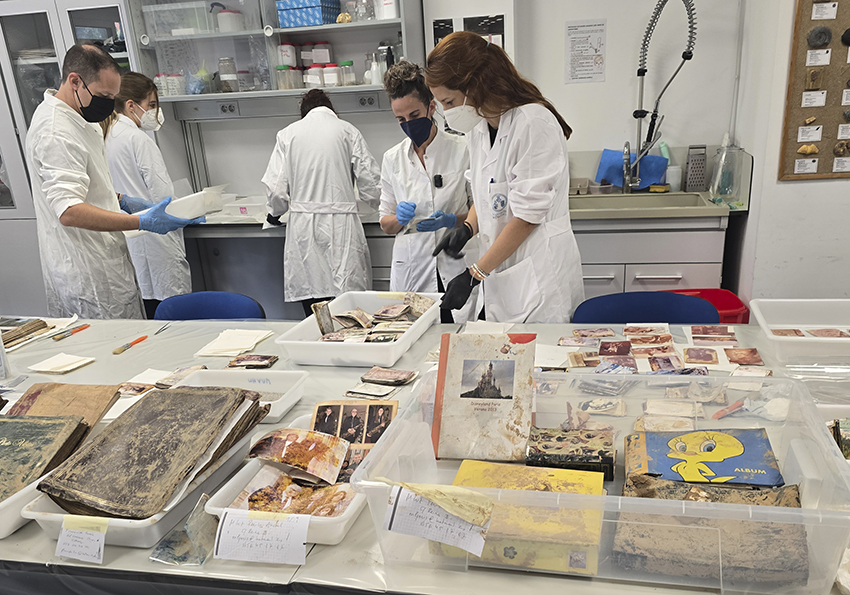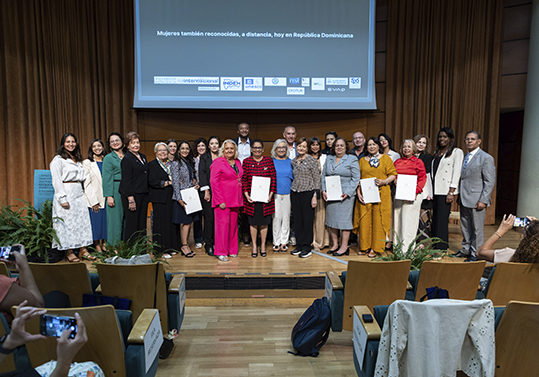onference ‘La memoria y el perdón’, given by Amelia Valcárcel, in the framework of the Escola Europea de Pensament Lluís Vives
- November 14th, 2016

The Escola Europea de Pensament Lluís Vives has started this week, in the Cultural Centre La Nau, with the conference of the writer and philologist Santiago Posteguillo, on Tuesday 15. Today, the philosopher Amelia Valcárcel offers the conference ‘La memoria y el perdón’ (Memory and forgiveness), at 19:00.
The entry is free and it can also be followed in streaming in the following link: http://mediauni.uv.es/epensament
A very significant topic in our societies is forgiveness. In places where there have been extremely traumatic situations, such as a civil war, an armed internal conflict or grave social détentes which affect human rights, we need to reflect and analyse the victims’ forgiveness towards the one who has been their executioner, a relationship which, according to professor Amelia Valcárcel in her book ‘La memoria y el perdón’, goes beyond the legal field until arriving at the moral one.
With the homonymous title, Valcárcel, philosopher and honorary doctor by the UV, will give the conference ‘La memoria y el perdón’, on Thursday 17, at 19:00, with free entry. The professor will try to answer, from the point of view of moral philosophy and politics, some questions related to whether it is possible or not to forgive; if forgiveness and oblivion are, in this context, synonyms; if forgiving serves any purpose; who can do it; or what is the relationship between justice and memory, for example.
On the other hand, Amelia Valcárcel is in charge of two seminars on 16 and 18 about the same topic, titled ‘La memoria y el perdón. Ontología de la deuda’ (Memory and forgiveness, Ontology of debt) and ‘El deber de no olvidar’ (The Duty of not forgetting). From 18:00 to 20:00, they will be held in La Nau in the Universitat. In this case, attendance requires previous inscription in this link, with a price of €10, and places are limited.
The seminar sessions will be available in the repository of Culture of Television of the Universitat de València, MediaUni.
Amelia Valcárcel is full university professor of Moral Philosophy and Politics in the UNED, and has had a wide teaching and research career through the direction, coordination and presidency of seminars and congresses, as well as through her participation in research projects on philosophy, values and the position of women. Valcárcel is, in addition, member of the State Council since 2006.
All the information about the Escola Europea de Pensament Lluís Vives and its programme can be found in the web http://www.escoladepensamentlluisvives.com
Architecture of the novel
Santiago Posteguillo offered the conference ‘La legión perdida, la novela encontrada: navegando entre la ficción y la historia’, on Tuesday, 15 November. The author of the trilogy of Trajan, and previously, the trilogy of Scipio the African (Africanus), explains the technique he uses to write historical novel, a genre in which he has been recognised with some awards. Posteguillo went in depth into the “narrative architecture” as an instrument to create entertainment and learning universes.
Santiago Posteguillo is philologist, linguist and European doctor by the UV. Nowadays, he is tenured university lecturer in the Universitat Jaume I (UJI) in Castelló, where he gives lessons of English Language and Literature. He led the Inter-university Institute for Applied Modern Languages (IULMA) in the Valencian Community, based in the UJI. Among other awards, in 2014 he was granted the Barcino Prize of Historical Novel of the City Hall of Barcelona and he was appointed Honorary Ambassador of the Universitat Jaume I; a year later, he was appointed by the Valencian Government Writer of the Year 2015. Santiago Posteguillo has also published some works of stories, such as ‘La noche en que Frankenstein leyó El Quijote’ (The night in which Frankenstein read The Quixot) and ‘La sangre de los libros’ (The books’ blood), about the history of Literature.
What is the Escola Europea de Pensament Lluís Vives?
The Escola Europa de Pensament Lluís Vives is a cultural project, promoted by the office of the vice-principal for Culture and Equality, with the management of the General Foundation of the Universitat de València, which is built as a space for reflection and open debate, participatory and critical on matters of the present day at global scale and also for the Valencian society. In addition, the Escola counts on the participation of other citizens of the Public administration and civil society: The Presidency of the Valencian government, the City Hall of Valencia, the Valencian Department of Transparency and Education, Research, Culture and Sports, the Acadèmia Valenciana de la Llengua, the Alfons el Magnànim Institute, the Escola Europea d’Humanitats and Caixa Popular.
The Escola Europea de Pensament Lluís Vives will have three fundamental activities in the programming: conferences and book presentations, seminars and a permanent seminar. The programme will be held in the Cultural Centre La Nau, and, after the interventions of Santiago Posteguillo and Amelia Valcárcel, the participations of Josep Ramoneda, Joan Francesc Mira, Albert Hauf or Maribel Ripoll are expected.
The conferences and book presentations, which can be associated to debates or seminars, will approach well-known professionals in different fields: science, cinema, literature, feminism, history... These sessions will always be opened to the public with the sole restriction of the capacity of the hall.
For the seminars, a registration is required, with a price of €10, and the admission will follow a temporary order until completing the places available. Reduced groups will be organised to promote the reply, debate and interaction between participants.
The Escola Europea de Pensament Lluís Vives also hosts a permanent seminar which is called once per month to discuss new frontier spaces of contemporary culture. This seminar, titled ‘Cultures in the borders’, is organised in different thematic areas and some issues are expected to be discussed, such as the role of cultural institutions and the new initiatives that appear in the environment, the impact of technological development and the redefinition of the role of the State and market in the field of production and cultural consumption.
As members of the academic council participating in this project, we can find professors of the Universitat de València from different campus and disciplines, such as Isabel Fariñas, Elena Martínez, Federico Pallardó and Joan Romero.
Categories: Centre cultural La Nau , Conferències i debats















